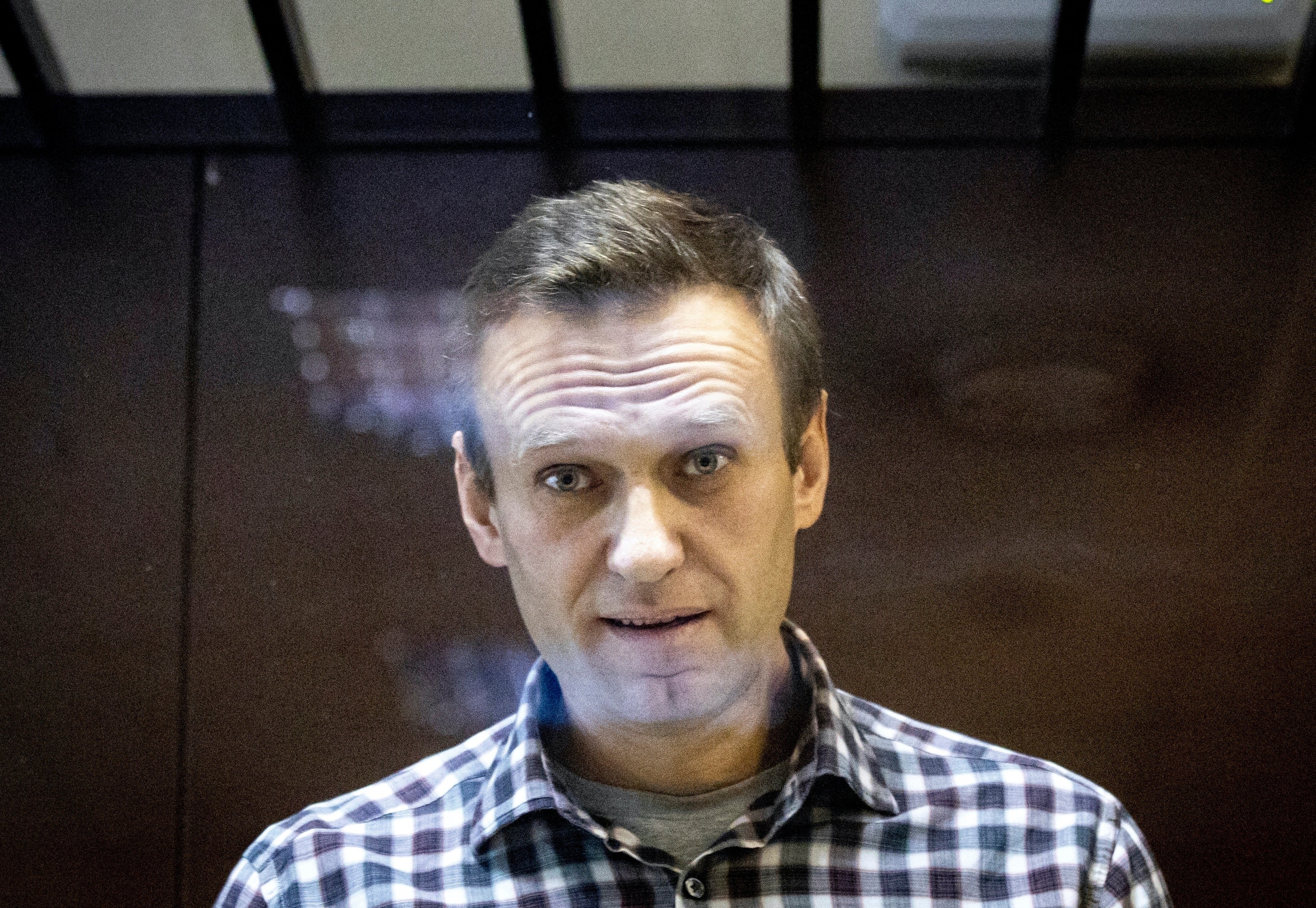Russian court mulls motion to outlaw Navalny's organizations
A Moscow court is considering a request by prosecutors to outlaw the organizations founded by Russian opposition leader Alexei Navalny

Your support helps us to tell the story
From reproductive rights to climate change to Big Tech, The Independent is on the ground when the story is developing. Whether it's investigating the financials of Elon Musk's pro-Trump PAC or producing our latest documentary, 'The A Word', which shines a light on the American women fighting for reproductive rights, we know how important it is to parse out the facts from the messaging.
At such a critical moment in US history, we need reporters on the ground. Your donation allows us to keep sending journalists to speak to both sides of the story.
The Independent is trusted by Americans across the entire political spectrum. And unlike many other quality news outlets, we choose not to lock Americans out of our reporting and analysis with paywalls. We believe quality journalism should be available to everyone, paid for by those who can afford it.
Your support makes all the difference.A Moscow court on Wednesday is considering a request by prosecutors to outlaw the organizations founded by Russian opposition leader Alexei Navalny — part of authorities' efforts to muzzle critics ahead of a crucial parliamentary election in September.
The Moscow City Court is expected to grant the request to designate Navalny's Foundation for Fighting Corruption and his sprawling network of regional offices across Russia as extremist organizations.
In conjunction with a new law, the ruling would bar people associated with the groups from running for public office, derailing hopes by Navalny's allies to seek parliament seats.
The extremism label also could potentially carry prison terms for activists who have worked with the organizations, anyone who donated to them, and even those who simply shared the groups' materials.
The court is expected to issue its verdict later in the day, according to the lawyers in the case.
Navalny’s offices in dozens of Russian regions already shut down in April after the prosecutors issued an injunction to suspend their activities pending the court's ruling, but the dissident's associates have vowed to continue their work in different formats.
Navalny, the most adamant political foe of President Vladimir Putin was arrested in January upon returning from Germany where he spent five months convalescing after a nerve agent poisoning that he blames on the Kremlin — accusations that Russian officials reject. In February, Navalny was given a 2 1/2-year prison term for violating the terms of a suspended sentence from a 2014 embezzlement conviction that he dismissed as politically driven.
His foundation, started 10 years ago, and has relentlessly targeted senior government officials with colorful and widely watched videos that detail corruption allegations against them. One of its latest productions, which has received 117 million views on YouTube, claimed that a lavish palace on the Black Sea shore was built for Putin through an elaborate corruption scheme. The Kremlin has denied any links to Putin.
Navalny also has relied on his offices across Russia to promote and implement his Smart Voting strategy — a project to support any candidates who are most likely to defeat those from the Kremlin’s dominant United Russia party in various elections.
Just as the Moscow court was considering the prosecutors' request to outlaw Navalny’s organizations, Russian lawmakers have fast-tracked a new law that banned members of organizations declared extremist from running for public office. Another bill in the works would toughen sanctions against members of extremist organizations to make their activities punishable by six years in prison.
Several of Navalny’s associates have declared their intention to run for parliament in September, but the court's verdict and the new laws would bar them from the race.